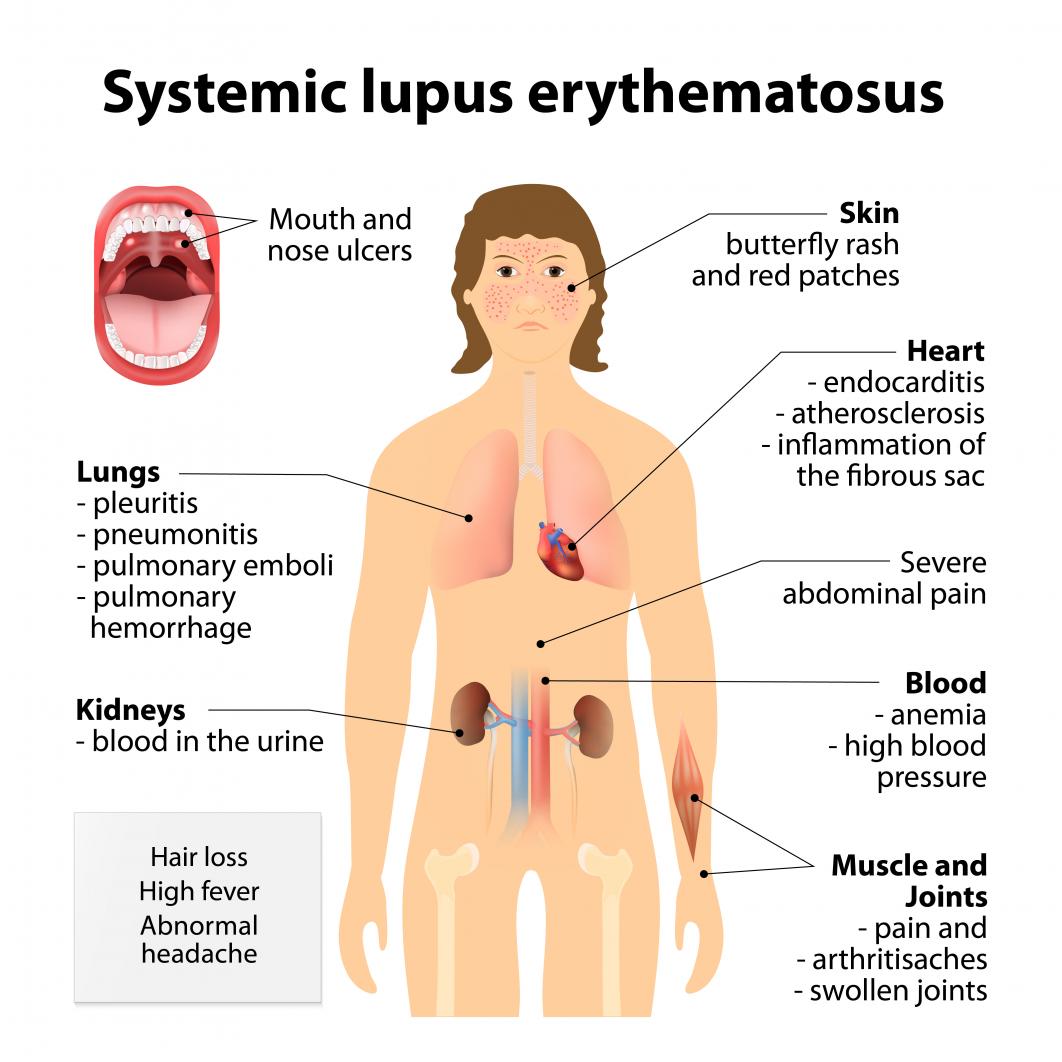Navigating Lupus: Recognizing the Comprehensive Symptoms of an Autoimmune Battle
Lupus, an autoimmune disease, is a complex condition where the body's immune system mistakenly attacks its own cells and organs. This can lead to a range of symptoms affecting various parts of the body, including the skin, joints, and major organs. Understanding these symptoms is crucial for timely diagnosis and effective management.

- Skin Rash (Malar Rash):
- A hallmark sign of lupus is the butterfly-shaped rash across the cheeks and nose. While primarily a visual concern, its presence can be a key indicator of lupus. It may begin small and spread, often worsened by heat or sun exposure.
- Oral and Nasal Lesions:
- Painful sores resembling canker sores in the mouth and nose are common. These can hinder eating, drinking, and breathing. Photosensitivity can exacerbate these lesions, especially after sun exposure.
- Joint Inflammation:
- Early lupus signs often include joint pain, particularly in the hands, feet, and knees. This inflammation results from the immune system attacking its tissues, and while initially mild, it can escalate in severity.
- Photosensitivity:
- Exposure to sunlight can trigger or worsen skin lesions and cause discomfort like headaches, a notable symptom for those with lupus.
- Persistent Fever and Headaches:
- Chronic, low-grade fever and ongoing headaches can be subtle yet persistent lupus symptoms. These general symptoms can be easily overlooked but are important indicators when coupled with other lupus signs.
- Chest Pain:
- In severe lupus cases, inflammation can extend to the lungs, causing pain and potential pneumonia risk. This symptom can be life-threatening if not addressed.
- Hair Loss:
- Autoimmune disruption can lead to hair thinning or loss, a distressing symptom for many lupus patients.
- Raynaud's Phenomenon (Blue Fingers):
- Restricted blood flow to fingers, causing numbness and color changes, is known as Raynaud's phenomenon. While not directly harmful, it's a notable lupus symptom.
- Chronic Fatigue:
- Lupus patients often experience debilitating fatigue, affecting their daily life and potentially leading to depression.
- Kidney Complications:
- Kidney inflammation can cause urinary issues and potential toxin buildup, manifesting as altered urination patterns and urine discoloration.
- Thyroid Issues and Weight Fluctuations:
- Lupus can affect the thyroid, leading to metabolism changes and unexplained weight changes.
- Gastrointestinal Disturbances:
- Lupus may cause or aggravate digestive issues like acid reflux, leading to abdominal discomfort.
- Dry Mouth and Eyes (Sjogren's Syndrome):
- Lupus can cause dryness in the mouth and eyes, symptoms of Sjogren's syndrome, a related autoimmune disorder.
- Neurological Symptoms (Confusion, Seizures, Psychosis):
- Lupus can impact brain function, leading to symptoms ranging from memory issues to severe conditions like seizures and psychosis.
- Anemia:
- Many lupus patients also experience anemia, characterized by a lack of healthy red blood cells, leading to fatigue and shortness of breath.
Lupus management requires a holistic approach, focusing on symptom relief and maintaining a quality of life. If you or someone you know exhibits these symptoms, it's essential to seek medical advice for a proper diagnosis and to explore treatment options.